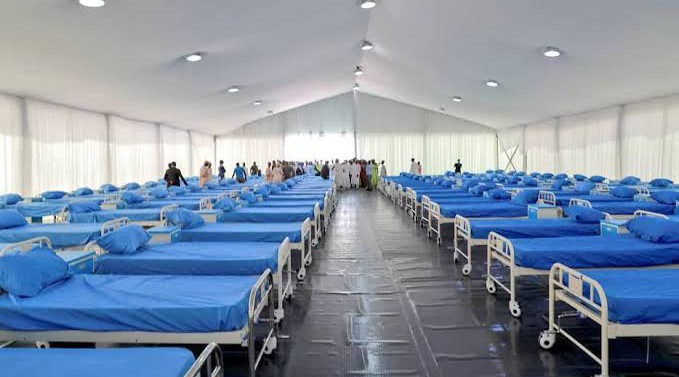As the battle against Coronavirus continues, Nigeria has recorded 101 new COVID-19 recoveries on Friday and two deaths, increasing the total number of country’s discharged patients to 62,686.
Nigeria also recorded 246 new cases of COVID-19 on Friday and the new cases have made the number of confirmed cases crossed 67,000.
This was disclosed by the Nigeria Centre for Disease Control (NCDC) via its update for November 27, 2020.
The new infections were recorded in nine states and the federal capital territory (FCT).
According to the NCDC, the number of discharged patients on Friday included “71 community recoveries in Lagos State managed in line with guidelines”.
Two new deaths were recorded, increasing the fatality toll to 1,171.
A total of 67,220 cases have now been confirmed across the country.
246 new cases of #COVID19Nigeria;
Lagos-81
FCT-73
Plateau-39
Kaduna-25
Ogun-13
Bauchi-5
Rivers-4
Ekiti-2
Taraba-2
Kano-267,220 confirmed
62,686 discharged
1,171 deaths pic.twitter.com/iCimmGzUAg— NCDC (@NCDCgov) November 27, 2020
However, the World Health Organisation (WHO) has revealed how vaccine distribution will take place when approval is given.
This disclosure was made by the director-general of the WHO, Tedros Ghebreyesus at a media briefing on Friday.
Tedros explained that the elderly and other persons determined to be at risk would be prioritised, while testing capacity would be increased as part of efforts to reduce the risk of spread.
“As vaccines are rolled out, testing will continue to play a vital role. Initially, health workers, older people and other at-risk groups will be prioritised for vaccination,” he said.
“That will still leave the virus with a lot of room to move, and testing will remain a vital tool for controlling the pandemic. If you don’t know where the virus is, you can’t stop it. If you don’t know who has the virus, you can’t isolate them, care for them or trace their contacts.
“But testing must be strategic, in support of clear public health objectives. Everyone who needs a test should get a test. WHO’s guidance outlines how countries can test strategically based on their transmission scenario.
“It’s also important to remember that although testing is vital, it’s only part of the strategy. Testing is the spotlight that shows where the virus is. Investments in testing must be matched by investments in isolation facilities, clinical care, protecting health workers, contact tracing, cluster investigation and supported quarantine.”
